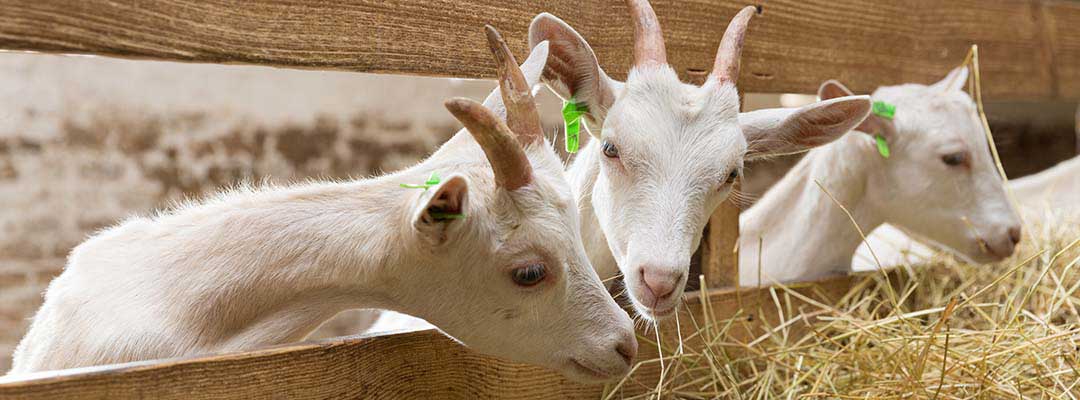Goat Deworming
Internal parasites are often one of the greatest health threats to goats.

Internal parasites are often one of the greatest health threats to goats. The problem has been compounded by the ability of the parasite population to develop resistance to dewormers, making it necessary to deworm strategically only the most severely affected animals, rather than deworming all animals in a herd.
Deciding which animals to deworm can be aided by using the FAMACHA© score, which measures anemia by comparing the color of the lower eyelid to a color chart, and is especially valuable when dealing with the barberpole worm. The Five Point Check© is another aid to deciding which animals need deworming, and utilizes the FAMACHA© score, but also includes scoring body condition, hair coat, soiling around the tail, and edema under the jaw (bottle jaw) to detect worm loads from parasites besides the barberpole worm.
Deworming only the severely affected animals, along with other management practices such as pasture rotation, use of Copasure (copper oxide) capsules, fasting and repeat dewormer dosing, administering two different classes of dewormers at the same time, and feeding serecia lespedeza as a source of condensed tannins are all tools in the kit to reduce the effects of parasite resistance.
Dewormers are divided into three classes:
It is now proven that rotating between classes of dewormers is not an effective tool to prevent build-up of resistance. Generally, using a single class of dewormer for as long as it is effective is preferred to attempting to rotate between classes.
Although dewormers for cattle are available as pour-ons, orally as liquids or paste, and injectables, when deworming goats, it is necessary to use the oral route to be effective. Since most of the dewormer products are labeled for sheep rather than goats, when using a sheep product in goats, most veterinarians recommend doubling the sheep dosage, except for levamisole, which is usually increased by 1.5 times to avoid toxicity.


